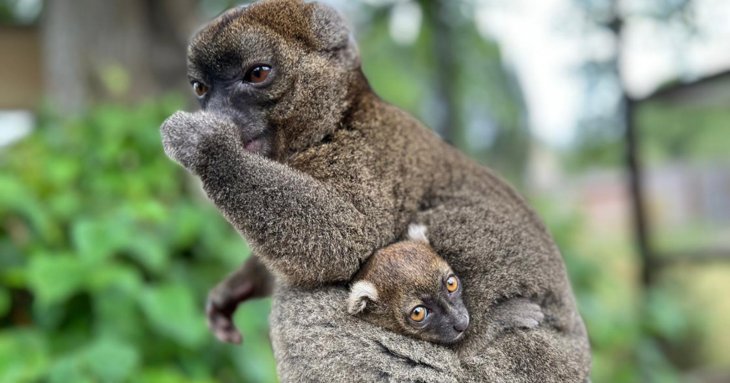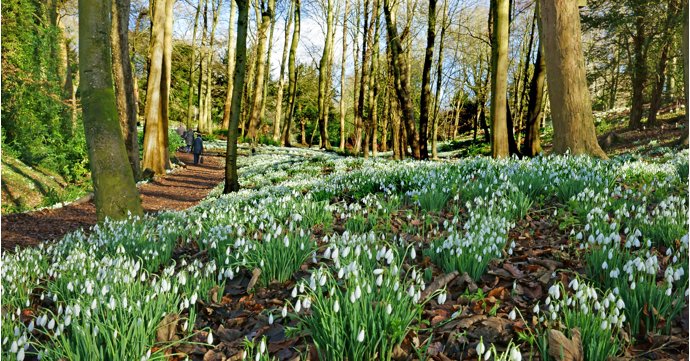Not only named the 'Best Zoo in the UK' for two years in a row, Cotswold Wildlife Park and Gardens has had a record-breaking year for visitor numbers – along with its most successful breeding season on record for one of the collection's rarest species, the Greater Bamboo Lemur.
One of the largest zoological collections in the UK – with over 1,500 animals from 250 different species – and set in 160 acres of beautiful parkland, the park is the only zoological collection in the UK and one of three worldwide to have bred the rare primates this year.
There are only 41 Greater Bamboo Lemurs in captivity across nine institutions globally and with a population of 13, Cotswold Wildlife Park is now home to the biggest breeding group in the world.

Natalie Horner, section head of primates, small mammals and birds, said: 'The Greater Bamboo Lemur is one of the most endangered species of Lemur, found only in the rainforests of eastern Madagascar.
'Classified as 'critically endangered' on the International Union for the Conservation of Nature (IUCN) Red List of Threatened Species, today the global population is estimated between 1,200 to 1,500 individuals.
'This is fewer than higher profile species such as the Black Rhino, Tiger and Giant Panda. They are threatened by habitat destruction and fragmentation, which leads to the isolation of the different populations by forest degradation. They are also affected by hunting and mining which causes water pollution.
'Our group first successfully bred during lockdown in 2020. Since then, our male Raphael and females Bijou and Veloma have produced nine youngsters. Bijou and Veloma are wonderful mothers and Raphael is such a playful dad.
'We have a second group of Greater Bamboo Lemurs, formed with two of our female youngsters born in 2021 and a male from Zoo Lyon. This group had their first breeding success this year with Nomena and Fotsy both producing their first young.
'We are incredibly proud that both our groups have produced
young this year, meaning we have four baby Bamboo Lemurs who are all going from
strength to strength every day. They have all had their first taste of solid
food and are becoming more confident, spending some time away from their
mothers playing and exploring their enclosures.'
The as-yet-unsexed and unnamed new arrivals have made their
debut ahead of World Lemur Day on Friday 31 October 2025 – and visitors can see Bijou
and Veloma’s babies inside the park’s Lemur exhibit: 'Madagascar'.





















